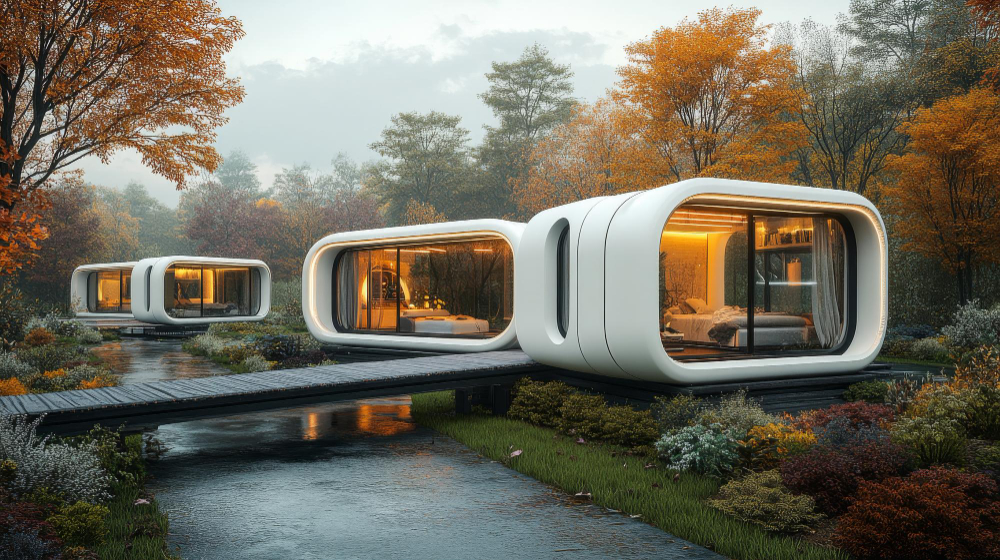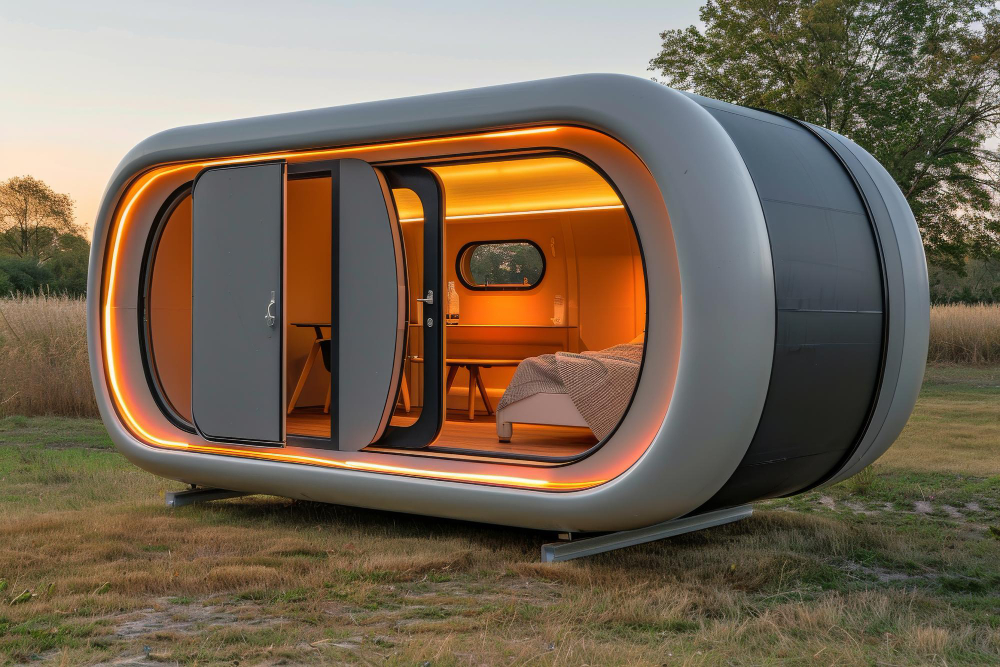
Recently, capsule houses have attracted people's attention since they represent innovative designs and are cost-friendly. As more and more people flood urban areas and house prices are high, such compact living options offer an easily accessible, practical alternative for many people. Let's learn about the costs and unique characteristics of capsule houses so we can start thinking about why people have begun to choose them for modern life.
What Is a Capsule House?

A capsule house is a very compact house developed primarily to increase maximum efficiency and comfort. It was first developed in Japan when housing was done to satisfy the minimum needs of both individuals and couples. Using intelligent storage solutions and flexible furniture, these capsule houses acquire all the essential daily necessities- an almost-compact bathroom, a bed, a kitchenette, and smart technology options- all at smaller footprints than any other house. First, this minimalist approach lowers costs and solves growth-related problems regarding urbanization and land scarcity, making capsule houses a sensible choice for those who want economical and practical living spaces.
Understanding the Concept of Space Capsule Houses
Compact, self-sufficient units epitomizing functionality and efficiency have transformed urban living. Such homes are conceived within space capsules where every inch counts. For their inhabitants, multifunctional furniture and intelligent technology will provide almost all they may want in a small space. Sleek design and eco-compatibility appeal to an increasingly conscious urbanity driven by the pursuit of sustainable minimalism.
The History of Capsule Houses

Capsule houses in Japan are said to have their roots in the early 1960s when Kisho Kurokawa pioneered the Metabolist Movement. This was an effort towards sustainable and versatile urban architecture. One of the most popular examples is the work of Kurokawa's famous Nakagin Capsule Tower in 1972, which was built in Tokyo with cylindrical pods as individual living spaces.
In recent years, the capsule home has evolved to cater to the issues associated with overcrowding and environmental aspects in modern cities. Over time, design efficiency has advanced significantly in technology and materials. In some years, energy-efficient systems and intelligent solutions have been included. Modern capsule homes evolved from Kurokawa's minimalist dream by embracing contemporary trends in the field of architecture and the needs of urban people.
Why Choose A Capsule House For Modern Living?
Choosing a capsule house, among many advantages associated with the lifestyle challenges of today, comprises the following key points:
- Efficient Space Utility
- Cost Effectiveness
- Environmental Sustainability
- Flexibility and Modularity
How Much Does a Capsule House Cost?
Depending on location, design, size, and materials, the cost of a capsule house can vary considerably, from around $20,000 for relatively simple models to over $100,000 for more luxurious ones. They are much cheaper than conventional houses, so it is no surprise that the popularity of capsule houses would be high for city dwellers.
Factors that Determine the Cost of a Capsule House
- Location
- Size and Design
- Materials and Construction
- Utilities Connections and Permits
- Transportation and Installation
Price Comparison: Capsule Houses and Conventional Houses
If compared, the price and construction time of capsule houses and traditional ones vary greatly. The former ranges between $20,000 and $100,000, while conventional homes often reach over $200,000. Besides, one may build a capsule house in weeks, whereas traditional houses may take months or years.
Affordability and Efficiency

Capsule houses are not unfriendly to affordability. Their smaller size and modular construction techniques make them quite viable for budget-friendly housing solutions. In addition, the efficient use of space and energy can also contribute to saving utility bills in the long term.
Is Capsule Housing A Good Investment?
Capsule homes would be an intelligent investment for specific buyer demographics. They appeal strongly to first-time home buyers and those wanting a small house; they would also be a good option for a weekend house.
Market Trends
The cost of capsule houses can vary depending on the place and market demand. In areas where land is scarce, these homes will surely appreciate faster than the average ones. The trend towards sustainability will also attract buyers who advocate for an environment-friendly place.
There are multiple advantages to living in a capsule house. For one, the usually meager cost lowers entry barriers into homeownership by making it possible for many people. The design maximizes usability even when sizes are smaller, and this is done while ensuring that the least environmental impact and utility costs are incurred through eco-friendly materials and energy-efficient systems.
Minimalistic Living
The simplicity of capsule houses encourages the tendency to live life minimally. Calm is induced, and controlled clutter fosters such a lifestyle. This can, therefore, contribute to well-mentality and well-being, which certainly facilitate a better life.
Summing Up
A capsule house is a new method of overcoming the city's challenges. The system is so affordable, efficient, and environmentally friendly that it becomes a relevant alternative to traditional houses. A capsule house could be just that for someone planning to downsize or innovate their lifestyle.
Interested in purchasing a capsule house or would like more information? Call Ajman Properties at www.ajmanproperties.ae or dial +971 0501737273. Come and be a part of the future in urban living with a bright, chic capsule home!










تعليقات (0)
اترك تعليقا